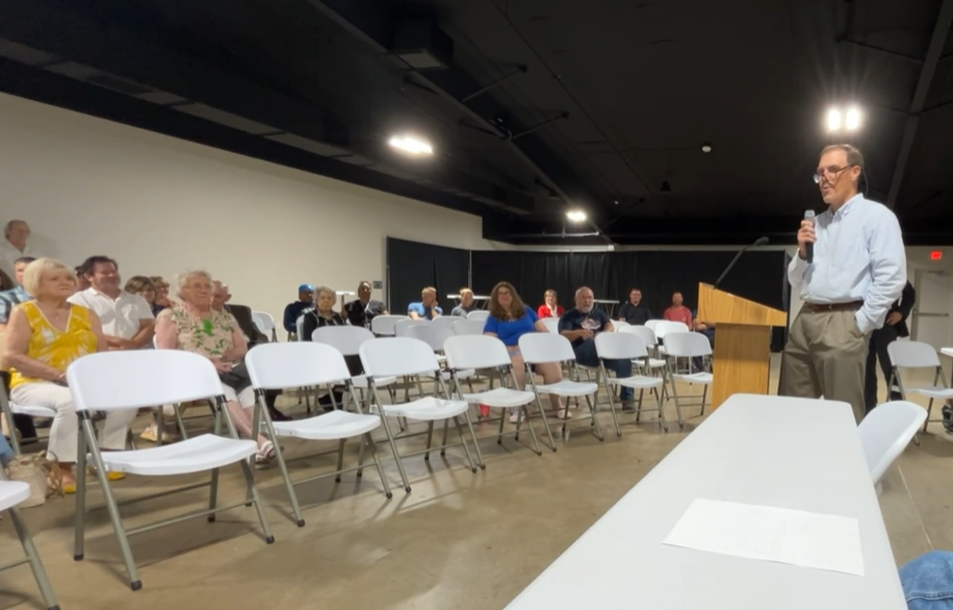DG MARTIN COLUMN: Reading to the end
Published 11:54 am Monday, September 11, 2023
|
Getting your Trinity Audio player ready...
|
You are not going to finish reading this column.
And it is not necessarily because the column is not all that interesting.
There may be other reasons according to Will Blythe.

D.G. Martin
Trending
Blythe, a native North Carolinian, is a well-known and highly respected writer and the former literary editor of Esquire. His 2007 book, “To Hate Like This Is to Be Happy Forever: A Thoroughly Obsessive, Intermittently Uplifting, and Occasionally Unbiased Account of the Duke-North Carolina Basketball Rivalry,” is on my all-time favorites list.
Today, however, Blythe is worried about something even more serious than the UNC-Duke basketball rivalry. He is worried about our inability to think and learn by reading.
In an essay titled “The Life, Death — And Afterlife — of Literary Fiction” in the July edition of Esquire, Blythe asks, “Can you read anything at all from start to finish, i.e., an essay or a short story, without your mind being sliced apart by some digital switchblade? Without your seeking distraction as a form of entertainment, or entertainment as a form of distraction?
“Or is all of this just ordinary life in the internet era, with your every thought and feeling and perception being diverted or fractured or dissolved or reiterated endlessly with utter normality in a digitalized world to which nearly all of us are fixated, or might we say, addicted? Did you ever even know a different world?”
Blythe asks, “As you read, is your smart phone or computer or iPad simultaneously acquiring notifications, texts and emails, along with promotions, advertisements and daily venues of news, opinions and games such as Wordle and Spelling Bee, an altogether constant onslaught of information, incessantly demanding that you spend every waking hour of every day focused on this unrelenting digitality that keeps showing up on the screen in front of you, that screen with which you likely indulge in more back-and-forth than you generally do in person with an actual human being, like, say, your husband, wife, son, daughter, brother, sister, friend, lover, boss, employee?”
Blythe’s essay caught the attention of conservative critic Joseph Epstein, who has written for Commentary magazine for 60 years. He is worried about the loss of what he calls “culture” in current times.
Trending
In an essay titled “Whatever Happened to Culture?” in the September issue of Commentary Epstein explains, “When I ask what happened to culture, I am asking how it has come about that the great subjects of culture — philosophy, art, music, literature, film — today no longer seem, so to say, up for discussion, at least not in their contemporary aspects. Ask a cultivated person who his or her favorite living painters are, or classical composers, or novelists and poets, and you are not likely to get a ready answer, or any answer at all.
“I have no satisfactory answers to these questions myself. I know no contemporary painters whose work I love in the way I love the paintings of Raphael, Vermeer, Gustave Caillebotte. I know no modern composers I care to hear after the now long-dead Aaron Copland, Maurice Ravel, and Igor Stravinsky. The last modern poet I admire is Philip Larkin, who died in 1985. I eagerly await the next book of no living novelist, and I haven’t been to a play in the past decade. As is I suspect the case with many other people who strive to live the cultivated life, in recent years I have been living almost entirely on the culture of the past.”
Epstein believes that the fractious interruptions described by Blythe contribute to the contemporary demise of culture and our appreciation of great music, literature, and art.
What can we do about it?
Put aside the smartphone and similar distractions and concentrate on the important and pleasurable writings, art, and music.
And as you have done these past few minutes, proving me wrong by reading this column to the very end.
D.G. Martin, a retired lawyer, served as UNC-System’s vice president for public affairs and hosted PBS-NC’s “North Carolina Bookwatch.”






